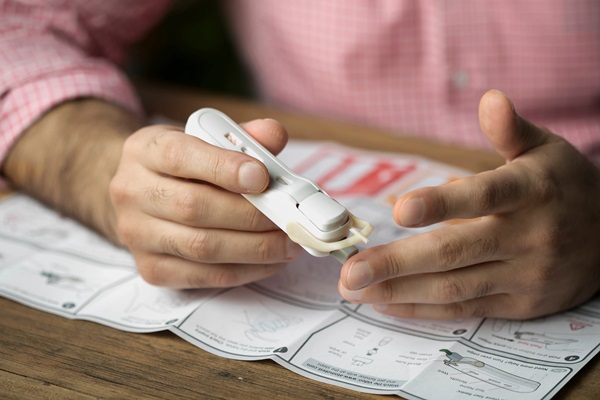Rapid Finger Prick Blood Test to Detect Active Syphilis Test at Point of Care
Posted on 24 Oct 2024
Syphilis, which is caused by the bacterium Treponema pallidum, is a sexually transmitted infection that continues to be a significant public health issue worldwide. Many individuals with syphilis are asymptomatic; however, if left untreated for several years, the infection can lead to severe health complications. Although syphilis is both preventable and treatable, cases are on the rise across various populations. In 2022 alone, there were 8 million reported cases among adults aged 15-49 globally. Traditional syphilis testing is performed by healthcare practitioners in clinical environments, but rapid test kits for syphilis are also available; unfortunately, these kits cannot differentiate between active infections and those that have been previously treated. Confirming an active syphilis infection requires more complex laboratory procedures and multiple interactions with skilled healthcare professionals to ensure accurate diagnosis. There is an urgent need for simple, rapid point-of-care tests to diagnose active syphilis and mitigate the disease's impact.
Atomo Diagnostics (Leichhardt, NSW, Australia) is partnering with The Burnet Institute (Melbourne, Australia) to spearhead the development of an innovative rapid test for diagnosing active syphilis that could help reduce the global burden of the disease. The 15-minute, one-step Treponema pallidum lateral flow syphilis test has demonstrated potential as an effective means of detecting active syphilis. This test, suitable for both point-of-care professional use and at-home self-testing, integrates Atomo’s established Pascal cassette, which utilizes a small finger prick blood sample, along with a unique syphilis antibody assay developed by the Burnet Institute that distinguishes between active infections and previously treated cases. Currently, there are no diagnostic tests specifically designed for congenital syphilis, and this test offers an easy-to-use solution to address this critical unmet clinical need.

The Pascal platform enhances performance and usability in point-of-care testing by featuring a built-in safety lancet, a unique blood collection and delivery system, and an integrated buffer delivery mechanism. Aimed at making rapid testing simpler and more accessible, this handheld platform includes an integrated buffer delivery mechanism that dispenses the necessary amount of chase buffer at the touch of a button. Interlocked user steps are designed to reduce common user errors, making the platform appropriate for both professional point-of-care and self-test applications. This pioneering rapid test solution will represent a first in the global market, as existing rapid syphilis tests only detect antibodies associated with both active and previously treated infections.
Related Links:
Atomo Diagnostics
The Burnet Institute













